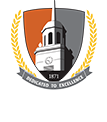Key: E=expected behavior, T=targeted behavior, B=behavior beyond target
Behavioral: Professional Assessment Worksheet
Achievement Motivation
Concern for excellence, competing against a standard of excellence.
E=Understands what it takes and puts forth the effort to do the job well.
E=Works to meet others' standards of performance (e.g., management and departmental goals).
T=Creates own measures of excellence and improved performance, which exceed those set by management.
B=Takes on challenging goals which are definitely a stretch but not unrealistic to attain.
B=Commits significant resources and/or time in face of uncertainty to improve performance.
Adaptability
Ability and willingness to alter behavior and opinions in light of new information, changing situations and/or different environments and cultures. Also, the ability to adapt to and work effectively within a variety of situations, and with various individuals and groups. Demonstrates respect and sensitivity for cultural diversity.
E=Accepts need for flexibility and acknowledges others' points of view.
E=Uses judgment in applying rules.
E=Applies rules flexibly when appropriate in order to get the job done.
E=Makes decisions based on the situation.
T=Shifts focus quickly to respond to changing organizational priorities.
B=Adapts own long-term strategy, goals or projects to achieve larger goal.
Commitment to Continuous Learning
Initiates actions to improve personal and professional skills, knowledge and abilities.
E=Analyzes own performance, prepares personal development plan and takes short-term action to improve performance in current job.
E=Keeps current in own field of expertise.
T=Actively seeks feedback, integrates feedback into personal development plan, modifies own thinking and behavior in response to feedback.
B=Independently and proactively pursues plans to improve longer-term personal development.
Constituent/Stakeholder Focus
Focus on discovering and meeting constituent/stakeholder needs.
E=Follows up on constituent/stakeholder inquiries, requests, and complaints.
E=Maintains clear communication with constituents/stakeholders.
E=Takes personal responsibility for correcting constituent/stakeholder service problems within area of responsibility.
E=Makes self available to constituents/stakeholders particularly during critical time periods.
T=Makes concrete attempt to make things better for the constituent/stakeholder.
B=Addresses underlying constituent/stakeholder needs, seeks information and matches needs to services.
B=Identifies solutions that have long-term benefits for the constituent/stakeholder.
Initiative/Proactivity
Take independent action or proactively create opportunities to resolve or prevent problems in keeping with role.
E=Shows persistence in overcoming obstacles when things do not go smoothly.
E=Addresses present problems rather than ignoring them.
E=Acts proactively in the short term (one to three months ahead).
T=Acts proactively with an eye on the current semester/year (four to twelve months ahead).
B=Anticipates and acts with future in mind. (one to two years ahead).
Networking
Build or maintain ethical relationships or networks with people who are, or might someday be, useful in achieving work-related goals.
E=Makes work-related contact through friendly interaction with others.
E=Initiates formal or casual contact to build work-related relationships.
E=Makes informal contacts to build relationships with clients and others.
T=Frequently initiates contact and makes effort to build rapport with co-workers or clients.
B=Maintains personal contacts over time through professional activities.
B=Cultivates relationships by developing, maintaining and using a network of professional contacts.
B=Builds and maintains a large network of professional contacts across geographic boundaries.
Problem Solving/Judgment
Analyze problems systematically, organize information, identify key factors, identify underlying causes and generate solutions.
E=Breaks problems down into simple lists of tasks or activities.
E=Sees basic relationships including cause and effect relationships, priorities, important facts; conducts analysis to identify productive solutions.
T=Sees multiple relationships and causal links, analyzes several parts of a problem, anticipates obstacles, acquires new knowledge to analyze and resolve problems.
B=Makes complex plans and analysis of complex problems, uses to understand "big picture."
Specialty Expertise
Knowledge of and/or skill in an area of specialty (e.g. marketing, advertising, engineering) and the ability to apply that knowledge and/or skill in a variety of situations. The specialty/expertise related to this job is: (to be completed).
E=Expected behaviors.
Teamwork and Cooperation
Working cooperatively with others, being part of a team, working together, as opposed to working separately or competitively.
E=Cooperates by participating with others in doing own share of work.
E=Keeps others informed of relevant or useful information.
E=Expresses positive expectations of team members.
E=Encourages group members to contribute.
E=Values and solicits ideas and opinions from others.
T=Assists others in the accomplishment of team goals.
B=Acts to promote positive climate, good morale, and cooperation within the team.
B=Brings team conflict out into the open and encourages or facilitates a beneficial resolution.

